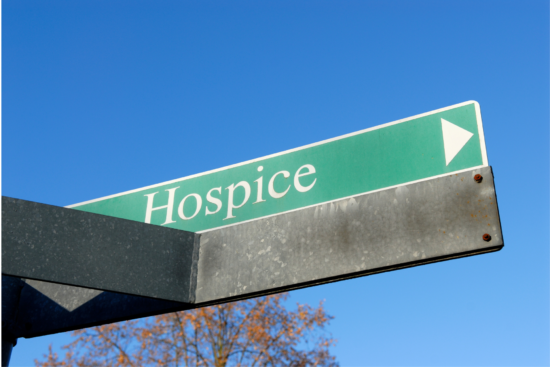Myth: Hospice is for people who are giving up.
Truth: While hospice is end-of-life care, it is not a death sentence. Hospice care is tailored to each patient’s needs with a goal of relieving symptoms and providing comfort from pain. At the end of life, most hope for comfort and peace. When diagnosed with a serious illness, the initial hope for most is to stop the illness (via treatment). Sometimes the reality is that no cure exists, or treatment is unsuccessful. Hospice ensures that the patient lives their best life possible for whatever time remains. In some cases, managing symptoms can lead to improved health outcomes resulting in graduation from hospice care.
Myth: Hospice is only for cancer patients.
Truth: When hospice began in the 1970’s, most people cared for by hospice had cancer. As medical technology and knowledge has advanced over the years, medical professionals are now able to diagnose different ailments earlier, resulting in different statistics in hospice care diagnosis. Today, the majority of hospice care patients have Alzheimer’s or a form of dementia. Other diagnoses include heart conditions, respiratory conditions, neurodegenerative diseases (such as Parkinson’s disease), and kidney disease.
Myth: Hospice is for people in the last few days of their life.
Truth: “I wish we would have called sooner”, a phrase we hear too often. Hospice care can be accessed up to six months before death expectancy. By receiving hospice care early, patients can spend time with loved ones without experiencing pain and without concern for providing care from loved ones. Hospice neither hastens death nor prolongs life, however studies have shown that patients with certain terminal diseases who chose hospice lived longer than similar patients who did not receive hospice care.
Myth: All hospices are the same.
Truth: While it is true that hospices are required by Medicare to meet basic requirements, not all hospices are the same. Hospices may be nonprofit or for-profit, independent or private, community-based or nationwide. Some communities may have multiple hospice programs serving them, all of which are not associated with one another. Often times, nonprofit hospices will offer services that for-profit hospices do not. Such as grief support, caregiver support, Transitions, education, publications, and charity hospice care. It is important to note that a patient has the right to choose the hospice agency of their choice, regardless of healthcare or insurance affiliation.
Myth: Your doctor must make the referral to hospice.
Truth: Anyone can refer to hospice: yourself, family member, friend. Patients and families can contact a hospice directly to ask questions and learn more about their services. Upon receiving a referral, the hospice will work with your doctor directly to determine medical eligibility (six months or less life expectancy). Although the hospice team includes a physician, the team will continue to work with your doctor, if you choose. Often times your doctor or specialist knows you and your health history best.
If you have further questions about hospice care, please reach out to use at 541.757.9616.
Lumina Hospice & Palliative Care is your local nonprofit hospice serving all of Linn County and Benton County, and parts of Marion County, Polk County, and Lane County. Albany, Brownsville, Lebanon, Sweet Home, Corvallis, Monroe, Philomath.
If you are not sure if you or your loved one is ready or eligible for hospice or palliative care, we can help. Call Lumina at 541.757.9616 to request a consult.
